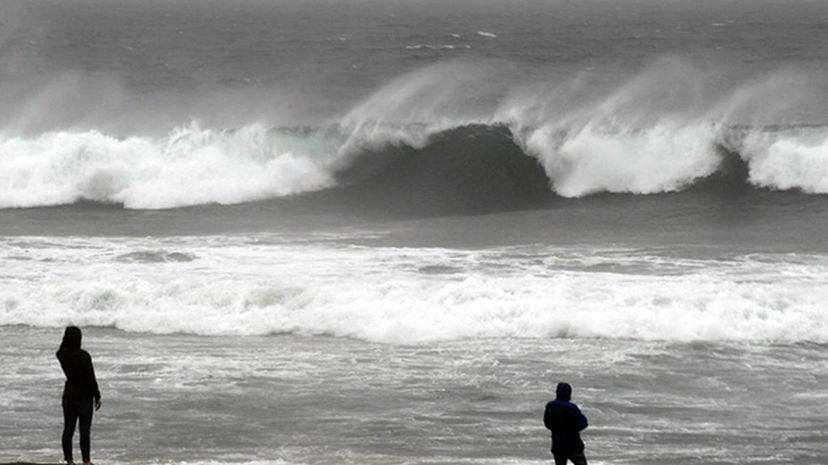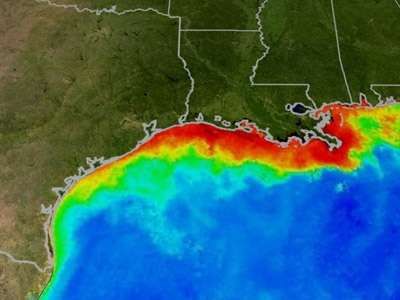
German scientists have determined what many have feared: Climate change has reduced the amount of dissolved oxygen in the world's oceans, a situation that can have dire consequences for marine organisms.
Researchers from the GEOMAR Helmholtze Centre for Ocean Research in Kiel, Germany found that between 1960 and 2010, the oxygen content in the world's oceans declined by 2 percent. The study also notes that because oxygen is not spread out evenly among the world's oceans, the overall 2 percent decline means that some areas have seen a much steeper decline in oxygen than others.
Advertisement
The Pacific Ocean, the world's largest, lost the most overall volume of oxygen, although the most precipitous decline occurred in the Arctic Ocean where climate change is ravaging the environment. The findings were published in the February edition of the journal Nature.
Researchers have assumed that dissolved oxygen levels were on the decline, but those predictions were previously based on regional analyses of ocean waters. The new GEOMAR study is the first global look at ocean oxygen levels, and the first deep-ocean study of its kind. The new study emphasizes that much of the worst effects of climate change are occurring in the oceans.
Dissolved oxygen, as its name suggests, is the amount of oxygen dissolved in water. It is also the lifeblood for marine organisms. The problem stems from the physics of the oceans. Cold water holds more oxygen than warm water and fresh water holds more oxygen than sea water. As climate change warms the planet and glacial ice melts, the waters of the oceans freshen and change. As that happens, the amount of oxygen in the sea declines and the currents are impacted.
The ocean gets most of its oxygen from the atmosphere. Atmospheric oxygen enters the ocean at its surface. If everything was working as it should, dissolved oxygen would mix its way down to the colder, deeper layers of the sea. However, as the upper layers of the ocean warm, oxygen is less likely to migrate into the deeper layers. That reduces the amount of oxygen marine organisms at those levels need to survive.
So what does this mean for the future of the oceans? Well it definitely doesn't paint a rosy picture. The scientists concluded that as oxygen levels decline, it will have a negative effect on marine habitat, specifically ocean nutrient levels, and that could also impact coastal economies. And if climate change continues, and dissolved ocean oxygen levels also rise — the authors of the study suggest there could be as much as 7 percent of the ocean's oxygen depleted by 2100.
Advertisement

